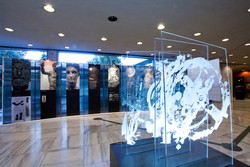Stakeholder cooperation to foster closer ties with history of science scholars in south-eastern Europe
Recognising a strong need to re-establish science in society and engage its wide range of stakeholders, the Programme of History, Philosophy and Didactics of Science and Technology (HPDST) brought together two interdisciplinary teams from Greece to conduct advanced related research. However, a number of weaknesses hamper the exploitation of its full potential to contribute to regional sustainable development through science and society activities. The EU-funded HEPHAESTUS(opens in new window) (Hellenic philosophy, history and environmental science teaching under scrutiny – He.P.H.a.E.S.T.U.S) project aimed to strengthen the HPDST. Researcher exchanges for mid- and long-term visits to and from European centres of excellence were carried out, and two senior researchers with international experience were recruited to reinforce the team in strategic fields. HPDST succeeded in obtaining funding for three of its research projects: two on the relations between science and religion and one on the history of alchemy. Several strategic partnerships were established, namely seven long-term international cooperation agreements signed with six European sister institutions and the Chinese Academy of Sciences. Four international networks were set up, one of which is recognised as an affiliated Unesco network. HEPHAESTUS organised the Antikythera Mechanism exhibition on ancient Greek technology. It was presented in eight European countries and secured key sponsors. A globally distributed documentary film was co-produced by European and Japanese TV channels. Other accomplishments include the launching of a state-of-the-art internet portal(opens in new window), publication of an international thematic journal Almagest, articles in peer-reviewed journals, and the development of new research fields constituting a team of global reference especially in science-religion studies. The organisation of a series of international conferences and workshops also contributed to achieving project objectives. HEPHAESTUS expanded HPDST activities in the areas of history, philosophy, and didactics of science and technology. Furthermore, the outcomes have wider societal implications thanks to extended sharing of scientific and cultural knowledge and enhanced dialogue between societies with different cultural histories and traditions. Such progress will make a major contribution to the integration of south-eastern Europe into the EU.



